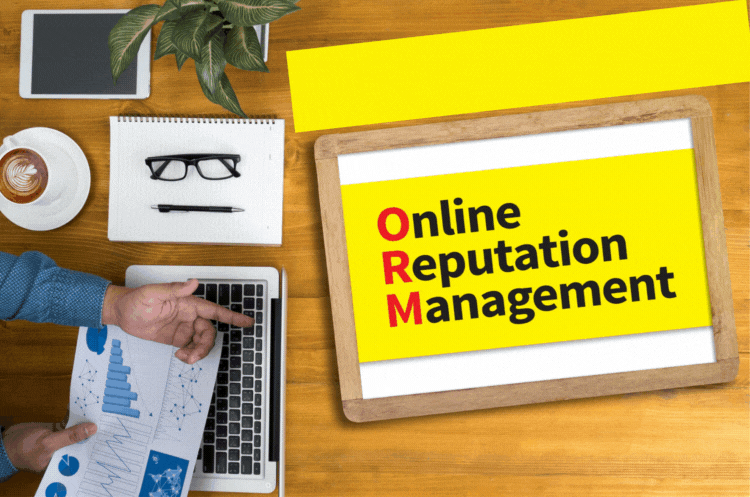Comprehensive Strategies for Effective Online Reputation Management in the Digital Age
Negative publicity has the power to greatly impact both individuals and organizations in today’s digital era, where information spreads rapidly. Whether it comes in the form of bad press, negative reviews, or social media backlash, the consequences can be far-reaching. In this article, we will explore various methods for managing negative publicity online.
Understanding Negative Publicity
Negative publicity refers to any information or communication that portrays a person, company, or organization in a negative light. This can include bad reviews, scandalous news, accusations, protests, or any other type of media coverage that harms one’s reputation. Negative publicity is a significant issue that requires attention.
Examining Negative Publicity Cases
- Kendall Jenner’s Pepsi Ad: In 2017, Kendall Jenner appeared in a Pepsi commercial that faced widespread criticism for trivializing protests against racial inequality. Many saw the ad as insensitive and accused Pepsi of exploiting social justice movements for profit. In response, Pepsi promptly pulled the ad and issued an apology. Kendall Jenner also expressed her regret, clarifying that there was no intent to downplay racial inequality.
- Volkswagen Emissions Scandal: In 2015, Volkswagen faced a massive scandal for manipulating emissions tests for their diesel cars. This unethical act resulted in a decline in consumer trust and sales. Volkswagen’s response included issuing apologies, allocating funds for recalls and compensation, facing legal consequences, and launching a comprehensive PR campaign to rebuild trust. The company openly admitted its wrongdoing and committed to making amends.
- Starbucks Racial Profiling Incident: In 2018, a Starbucks store in Philadelphia faced backlash when two black men were unjustly arrested, leading to protests and accusations of racial profiling. Starbucks CEO Kevin Johnson issued a public apology and promised swift action to prevent such incidents. Starbucks implemented new policies, including allowing non-paying customers access to their facilities and making a substantial donation for racial bias training.
The Widespread Impact of Negative Publicity
Negative publicity can arise from various sources, including media outlets, social media, online forums, and word-of-mouth. The consequences of bad PR can be significant and include:
Damage to Reputation: Negative publicity can harm personal and professional reputations.
Erosion of Trust: Trust among customers, clients, and stakeholders can erode, leading to broken relationships.
Decline in Investor Confidence: Investor confidence may decrease, causing stock prices to fall and financial instability.
Challenges in Business Opportunities: Securing new opportunities and raising capital becomes challenging, hindering growth.
Mental Health Impact: Negative publicity can lead to emotional stress, potentially causing mental health issues.
Legal Consequences: Negative publicity can lead to lawsuits, fines, or investigations, exacerbating the crisis.
Employee Retention Issues: Employee retention may become difficult as the company’s reputation suffers.
Increased PR Costs: Managing negative publicity often requires more spending on advertising and PR efforts.
Major fast-food chains like McDonald’s and Burger King have faced negative publicity related to food quality and pricing, affecting their reputations and consumer trust. Similarly, companies like Uber and Amazon have dealt with negative publicity related to employee treatment, emphasizing the far-reaching effects of such crises.
Effective Strategies for Managing Negative Publicity
When dealing with negative publicity, it’s crucial to respond promptly and strategically. Here are some strategies to consider:
- Monitor Online Presence: Keep a vigilant eye on online activities, including news, social media, and forums, to respond quickly when negative press arises.
- Analyze Root Causes: Understand the underlying causes of negative publicity to create effective mitigation strategies.
- Correct False Information: If the negative publicity contains inaccuracies, take immediate action to correct them.
- Embrace Honesty and Transparency: If the organization is at fault, be honest and transparent about the situation.
- Take Decisive Action: Implement measures to prevent similar incidents from happening again.
- Use Positive PR: Counteract negative publicity with positive PR campaigns that highlight the organization’s commitment to social responsibility and favorable customer reviews.
Navigating Negative Publicity with Build Brand Better

In today’s digital age, managing online reputation challenges is crucial. Consider partnering with “Build Brand Better,” a trusted ally in safeguarding your online reputation. Build Brand Better is a online reputation management company dedicated to helping individuals and organizations manage negative publicity effectively. With a team of experts, we offer tailored solutions for each situation.
Our Services Include:
Online Presence Monitoring: Continuously monitor your online presence to address negative press promptly.
Root Cause Analysis: Understand the root causes of negative publicity to develop effective strategies.
Correction of Inaccuracies: Rectify false or misleading information in press releases.
Honesty and Transparency: Champion honesty and transparency in reputation management.
Proactive Measures: Take decisive action to prevent future issues.
Positive PR Campaigns: Craft positive PR campaigns to rebuild trust.
Conclusion
Negative publicity can be challenging, but with the right approach, damage can be mitigated, and reputations can be rebuilt. Whether you are a public figure or part of a PR team, monitoring your online presence, understanding the root causes of negative publicity, correcting inaccuracies, being honest and transparent, taking decisive action, and using positive PR are essential strategies.
When dealing with online reputation management challenges, consider partnering with Build Brand Better. We are committed to helping you manage your online image and reputation in today’s digital age.
FAQ
- What is negative publicity, and why is it important to address?
Answer: Negative publicity refers to any information or communication that portrays a person, company, or organization in a negative light. It is crucial to address becausee it can harm reputations, erode trust, affect financial stability, and have legal consequences.
- How can I monitor my online presence for negative publicity?
Answer: To monitor your online presence, regularly check news outlets, social media platforms, and online forums. Utilize online reputation management tools and services that can alert you to any negative mentions.
- What should I do if negative publicity contains false information?
Answer: If negative publicity includes inaccuracies, take immediate action to correct them. Engage with the source to request corrections or retractions of the false information.
- How can I regain trust and credibility after negative publicity?
Answer: Regaining trust and credibility requires taking decisive action to address the issue, embracing honesty and transparency, and implementing measures to prevent similar incidents in the future. Additionally, using positive PR campaigns can help rebuild trust.
- Can negative publicity lead to legal consequences?
Answer: Yes, negative publicity can lead to legal consequences such as lawsuits, fines, or investigations, especially if false information or unlawful actions are involved.
FOR MORE BLOGS:- www.buildbrandbetter.io/blog/

